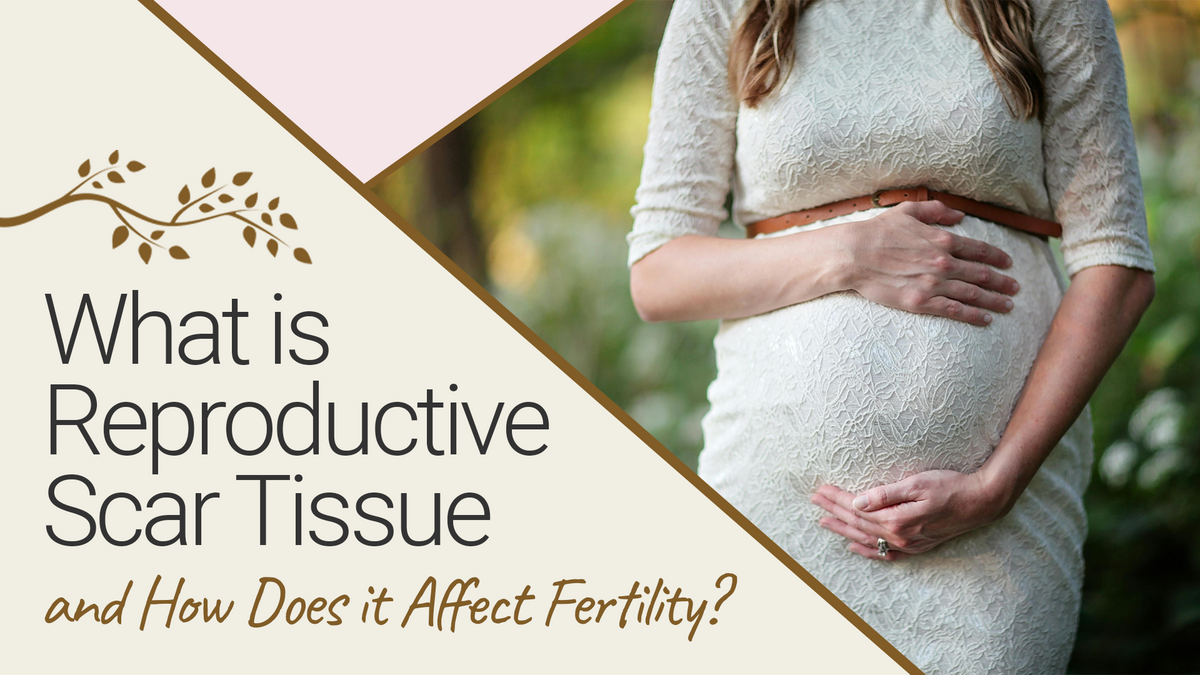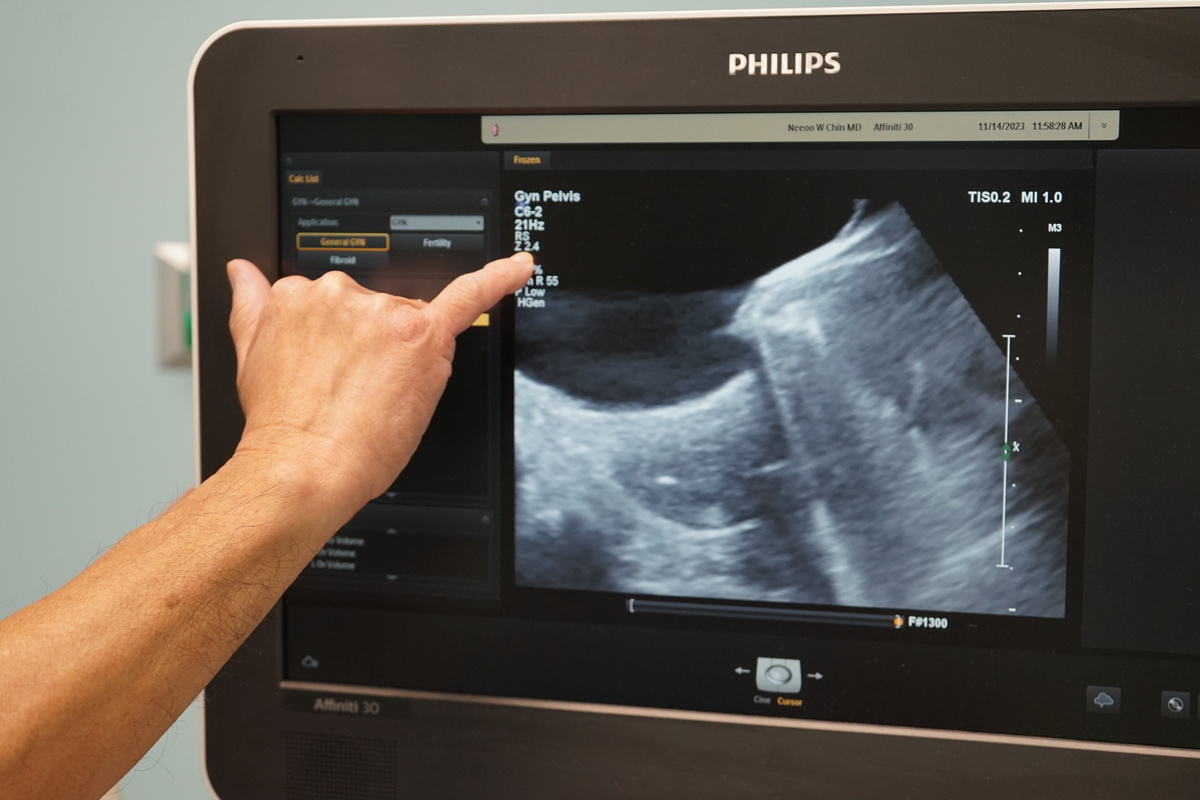What is Reproductive Scar Tissue and How Does it Affect Fertility?

Reproductive scar tissue is often overlooked and can be difficult to diagnose because it usually requires specialized fertility procedures. There are many different things that can cause scarring, so there is not one definitive cause or symptom that doctors can pinpoint that leads to a diagnosis.
While scar tissue is a problem that can disrupt your chances of getting pregnant, treatment can sometimes be relatively straightforward, with methods like IUI and IVF often being used to help those dealing with reproductive scarring get pregnant. It is important to remember that reproductive scar tissue can affect both men's and women's fertility.
In this post, we will take a deep look at reproductive scar tissue and how it can affect fertility. Then, we will discuss some signs you should reach out to a reproductive endocrinologist about the possibility of reproductive scar tissue.

Can Scar Tissue on Reproductive Organs Cause Issues When Trying to Get Pregnant?
Scar tissue can indeed cause issues when trying to get pregnant. Scar tissue can form due to various factors, such as surgeries, infections, or injuries, and can affect the reproductive organs. Scar tissue is commonly known to affect a woman’s ability to conceive but it can also impact
In women, scar tissue can block or narrow the reproductive passages, including the fallopian tubes, cervix, or uterus. This can prevent the egg from traveling to the uterus or the sperm from reaching the egg, reducing the chances of conception. Scar tissue can also affect the implantation of a fertilized egg, increasing the risk of miscarriage.
In men, scar tissue can block or narrow the vas deferens, the tubes that carry sperm from the testicles to the urethra. This can lead to a condition called obstructive azoospermia, where sperm cannot be ejaculated, thereby making natural conception difficult or impossible.
How Does Scar Tissue Affect Fertility in Women?
To address the impact of scar tissue on fertility, various medical interventions are available. Surgical procedures, such as laparoscopy or hysteroscopy, can help remove scar tissue and improve reproductive function. IVF may also be recommended for couples facing fertility issues related to scar tissue.
Below are a few different areas in women where scar tissue can create fertility issues.
Fallopian Tubes
When scar tissue forms in the Fallopian tubes, it interrupts the typical journey of the egg from the ovary to the uterus, preventing fertilization.
Uterus
Scarring inside the uterus, known as Asherman's Syndrome can negatively affect a woman’s chances of getting pregnant. This condition can occur as a result of surgeries like dilation and curettage (D&C), which are commonly performed after a miscarriage or to remove abnormal tissue from the uterus. Infections can also lead to scarring.
Ovaries
Surgeries like ovarian cyst removal or ovarian tissue resection may inadvertently cause adhesions or scar tissue to develop around the ovaries. In addition to endometriosis, these adhesions can impede the release of eggs, making conception more challenging.
When Should You Reach Out to a Healthcare Provider?
Deciding when to seek help from a reproductive endocrinologist can be an overwhelming decision. However, there are a few key factors that can help you determine if it is the right time to reach out to a healthcare provider.
Difficulty Conceiving
Difficulty conceiving can be a source of emotional distress and frustration for many individuals and couples. If you have been actively trying to conceive for over a year (or six months if you are over the age of 35) it is strongly advised to seek medical advice. Consulting a healthcare professional specialized in reproductive health can provide guidance, support, and potential solutions to help achieve pregnancy.
Pain and Discomfort
Pain and discomfort are common experiences for many people, especially when it comes to reproductive health. It is important to pay attention to any unusual symptoms that may arise, as they could indicate the presence of scar tissue or other reproductive health issues.
Chronic pelvic pain is characterized by persistent pain in the lower abdomen, which may radiate to the lower back or thighs. This type of pain can be caused by a variety of factors, including scar tissue from previous surgeries or infections, endometriosis, or ovarian cysts. Seek medical advice if you experience chronic pelvic pain, as it can significantly impact your quality of life. You should also seek treatment if you are experiencing extreme period pain or pain during intercourse.
History of Pelvic Surgery or Infections
If you have a history of surgeries like C-sections, and myomectomies, or have had pelvic inflammatory disease (PID) or endometriosis, you may have scar tissue affecting your fertility. Pelvic surgeries, such as C-sections or myomectomies, involve incisions in the pelvic region, which can lead to the formation of scar tissue.
Similarly, pelvic infections like PID or endometriosis can also result in scarring within the pelvis. PID occurs when bacteria from sexually transmitted infections migrate into the reproductive organs, causing inflammation and potential scarring. Endometriosis involves the abnormal growth of endometrial tissue outside the uterus, which can lead to pelvic scarring.
Irregular Menstrual Cycles
Irregular menstrual cycles can be a cause for concern that may indicate the presence of reproductive scar tissue and should prompt a discussion with your healthcare provider. Your menstrual cycle can be a reflection of your reproductive health, and any changes in its regularity, such as irregular periods, missed periods, or unusual flow patterns, maybe a sign of an underlying problem.
Seek Treatment with the Fertility Wellness Institute of Ohio
Reproductive scar tissue can lead to issues when trying to get pregnant, and unlike other fertility issues, it may not be as easily diagnosed. If you have been trying to get pregnant for a year or longer without success, then it may be time to schedule an appointment with the Fertility Wellness Institute.
Led by Dr. NeeOo Chin, a board-certified reproductive endocrinologist, the team at the Fertility Wellness Institute is here to help you on your fertility journey with care, compassion, and cutting-edge technology.
Click here to schedule an appointment with the Fertility Wellness Institute today!
Follow the Fertility Wellness Institute of Ohio on Facebook, Instagram, X, and LinkedIn!

